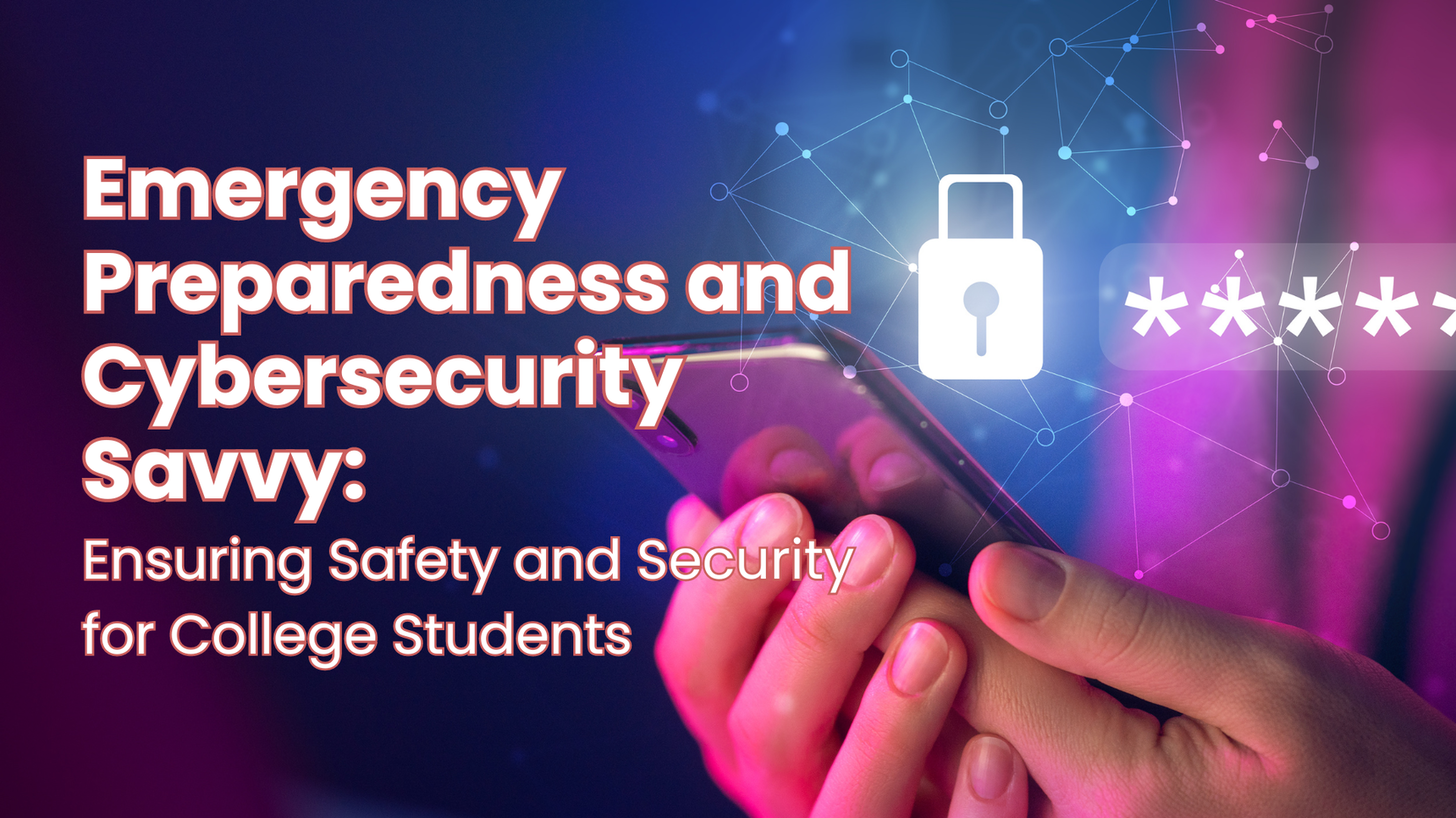Emergency Plans and Cybersecurity Tips for Your Teen

As your child embarks on their college journey, ensuring their safety and security is a top priority. From preparing for emergencies to protecting their digital privacy, these considerations are essential in today’s interconnected world.
Emergency Preparedness: Do We Have a Plan in Case of an Emergency on Campus?
College campuses are generally safe, but it's essential to be prepared for emergencies. The Clery Act Annual Security Report requires colleges to report campus crime statistics and safety policies, providing transparency about campus safety. Parents and students should familiarize themselves with emergency procedures and have a plan in place.
Steps for Emergency Preparedness
- Campus Resources:
- Know the location of the campus police station and health center.
- Communication:
- Have a plan for how you will communicate in an emergency.
- Important Contacts:
- Keep a list of emergency contacts easily accessible.
Checklists
|
[ ] Register your contact information with the campus emergency notification system. |
|
[ ] Save campus safety numbers in your phone. |
|
[ ] Discuss an emergency action plan with your teen. |
Emergency Preparedness: Do We Have a Plan in Case of an Emergency on Campus?
With the increase in online learning and digital communication, cybersecurity has become a critical issue. A report by EDUCAUSE shows that 87% of college students use public Wi-Fi, which can be a hotspot for cyberattacks. Parents should guide their teens on how to protect their digital privacy.
Cybersecurity Tips:
- Use a VPN:
- This encrypts data and provides a secure internet connection.
- Strong Passwords:
- Encourage the use of strong, unique passwords for different accounts.
- Two-Factor Authentication:
- This adds an extra layer of security.
Checklists
|
[ ] Set up a VPN service for your teen. |
|
[ ] Discuss the importance of updating passwords regularly. |
|
[ ] Teach them how to recognize phishing scams and suspicious emails. |
Ensuring your child’s safety and security on campus involves more than just physical preparedness.
By addressing both emergency preparedness and cybersecurity, you provide them with the tools and knowledge to navigate college life securely. These steps not only protect their well-being but also empower them to take responsibility for their own safety, ensuring a successful and secure college experience.
Take Action Today!
Don’t wait until an emergency or security breach happens—start the conversation with your college-bound teen now.
Share these tips, create a plan, and equip them with the tools they need to stay safe and secure on campus. Your proactive guidance today can make all the difference in their college experience.
Author:
Dr. Michelle Lloyd
Transition Success Coach
